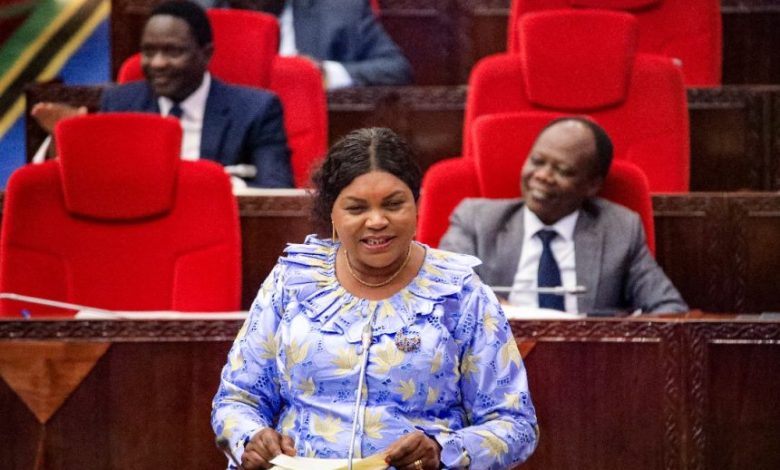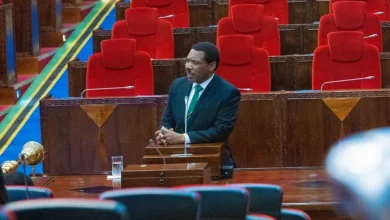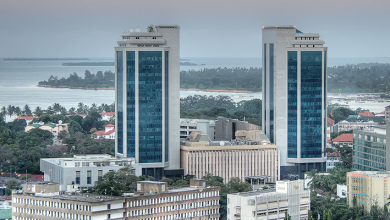1.6TRI/- HEALTH BUDGET: Path to cutting-edge services

DODOMA: MINISTRY of Health has identified ten key priorities to be implemented in the 2025/26 financial year, as part of ongoing efforts to advance health sector reforms spearheaded by the sixth phase government.
The priorities include strengthening the provision of specialised and super-specialised medical services and introduction of advanced procedures such as liver transplants.
Tabling the Ministry’s 1.6tri/- budget estimates for the 2025/26 financial year, the Minister for Health, Ms Jenista Mhagama, said that the health sector has made remarkable progress over the past four years, significantly contributing to advancing the country’s medical tourism initiative.
To strengthen the provision of specialised and superspecialised medical services and boost medical tourism, the government has allocated a total of 123.93bn/- for implementation of various interventions.
Minister Mhagama said that the government will continue to enhance and expand specialised services at the National Hospital, specialised hospitals, zonal referral hospitals and regional referral hospitals across the country.
The services include the introduction and enhancement of new services based on identified needs, such as liver transplant services at Muhimbili National Hospital (MNH– Upanga campus) and the establishment of specialised urology and male reproductive health services (Uro-andrology) at Muhimbili National Hospital (MNH-Mloganzila campus).
The government will also introduce shoulder and elbow replacement surgeries at the Muhimbili Orthopaedic Institute (MOI) and continue to provide brain, spine, hip and knee surgeries using the artificial intelligence navigation system at MOI and introduce interventional neuro-radiology services (non-invasive treatment of stroke and intracranial vascular conditions) at Benjamin Mkapa Hospital.
ALSO READ: Tanzania’s free healthcare services to pregnant women hit 65pc target
Ms Mhagama said the government will also introduce six specialised services in Radiology, Anaesthesia, Dermatology, Ophthalmology, Psychiatry and Haematology at Maweni Regional Referral Hospital in Kigoma.
Maxillofacial surgery services (jaw and facial surgery) will also be introduced at Iringa Regional Referral Hospital while ENT (Ear, Nose and Throat) services will be introduced at Kitete Regional Referral Hospital in Tabora, she said.
The minister further said that the ministry will also continue with the preliminary phase of a major renovation project at Muhimbili National Hospital (MNH) and establishing a prosthetics and orthotics manufacturing plant at the KCMC Zonal Referral Hospital.
It will also expand and strengthen strategic outreach services for specialised and super-specialised care (medical outreach camps) both locally and internationally.
She said the government will also enhance the availability and development of health sector professionals in mid-level, specialised and super-specialised fields, where by a total of 80.38bn/- has been allocated to implement the plan.
According to the minister, the funds will be used to finance training scholarships both locally and abroad for professionals at the specialised and super-specialised levels, as well as funding training for strategic midlevel cadres.
She said the government will also continue to provide health training for mid-level cadres in public health training institutions; and overseeing the quality of training in both public and private health training institutions.
In the coming financial year, the government is determined to strengthen health financing systems in the country, including continued implementation of the Universal Health Insurance Act, she said.
Minister Mhagama added that a total of allocation of 49.80bn/- has been allocated for addressing unforeseen policy changes from Western countries and overseeing the implementation of the Universal Health Insurance Act by starting to issue health insurance cards to various groups.
Other priorities include promoting and overseeing interventions related to traditional and alternative medicine, strengthening access to treatment services for communicable diseases, non-communicable diseases and epidemic outbreaks; and to enhance mental health services, rehabilitation services, particularly for children, the elderly and persons with disabilities.
“The government will also strengthen the use of ICT, including the application of Artificial Intelligence, in order to enhance efficiency in service delivery, integrate systems and reduce the cost of healthcare services in the country,” Ms Mhagama said.






962571 570155We clean up on completion. This may sound obvious but not many a plumber in Sydney does. We wear uniforms and always treat your home or office with respect. 115777